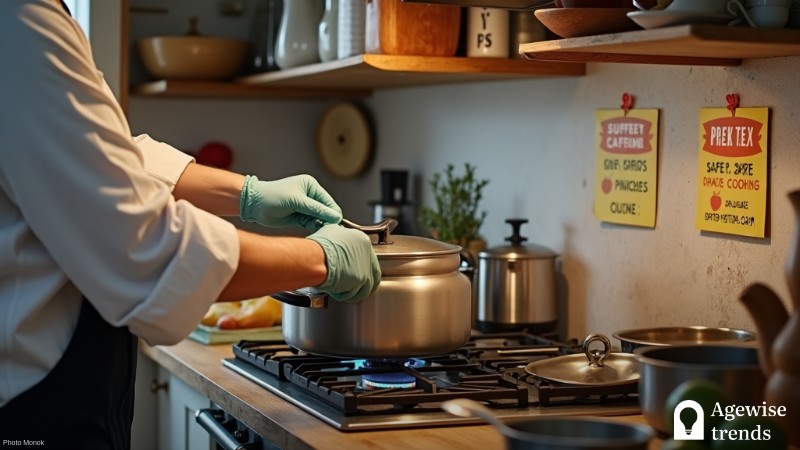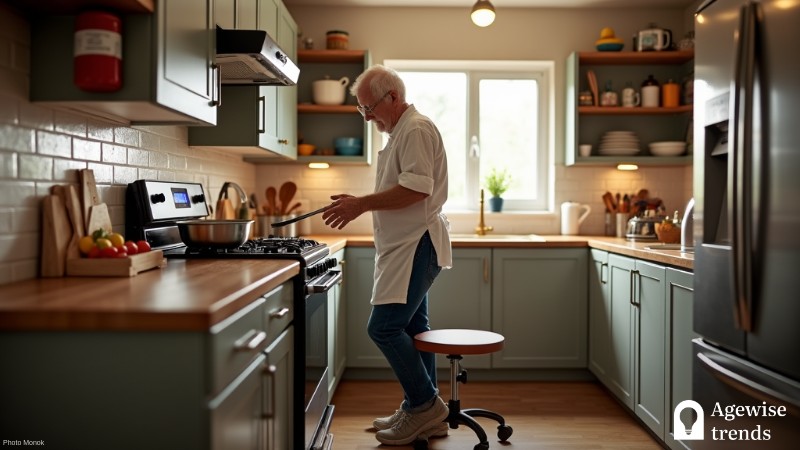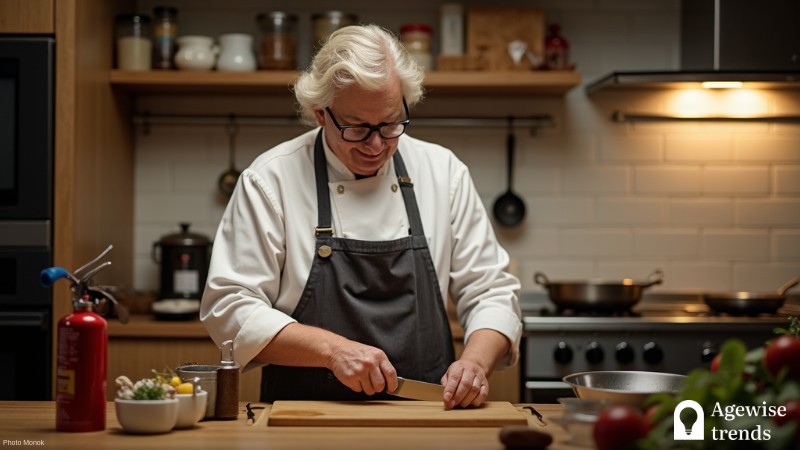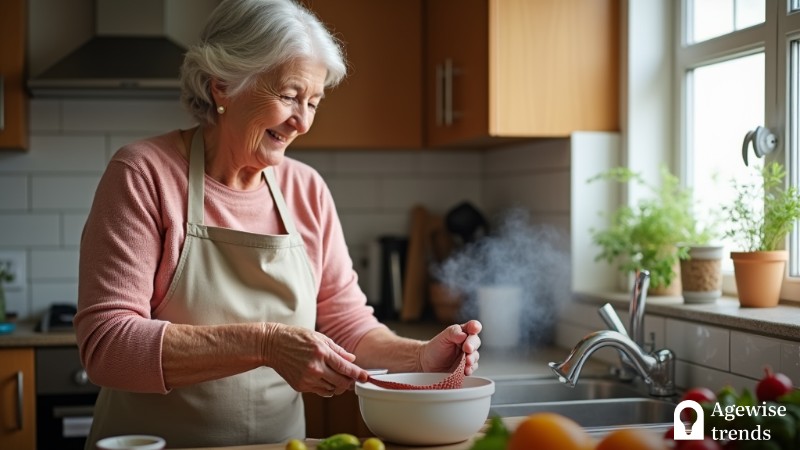Cooking is a rewarding experience, but it comes with its risks. Whether you’re an experienced chef or just starting, kitchen safety is key to making sure your culinary adventures are enjoyable and accident-free. From sharp knives to hot stoves, hazards are always present. By following a few simple kitchen safety tips, you can enhance your cooking experience while keeping yourself and your loved ones safe.
Key Takeaways
This article offers essential kitchen safety tips designed to improve your cooking experience and ensure the well-being of both seasoned cooks and beginners.
- Keep your kitchen organized by having your tools within easy reach and your countertops clear to help prevent accidents.
- Use caution when handling sharp knives by cutting away from your body, storing them securely, and using oven mitts when dealing with hot cookware.
- Maintain a clean environment by promptly cleaning spills and storing food properly to avoid cross-contamination.
Organizing Your Kitchen for Safety
A well-organized kitchen is essential not only for efficiency but also for preventing accidents. When a kitchen is cluttered, it increases the likelihood of accidents such as tripping or knocking over hot pans. To minimize these risks, store your tools and cooking equipment within easy reach, and keep countertops clear. This ensures that there is enough space to move around safely while you cook.
One of the most common hazards in the kitchen is the use of sharp knives. Always grip the knife firmly and cut away from your body to avoid accidents. It’s also crucial to store knives safely, either in a knife block or a designated drawer, so they are secure and easy to access. Storing knives properly helps to prevent cuts when retrieving or cleaning them.
Burns are another significant kitchen risk. Always use oven mitts or pot holders when handling hot cookware, as they provide necessary protection from burns. Ensure these items are stored securely, either hanging in a convenient spot or within a drawer, so they do not get knocked off the counter and become difficult to find when needed.
Additionally, never place flammable items near heat sources, such as stoves or ovens. Loose clothing or dangling sleeves should also be kept away from hot surfaces to prevent them from catching fire.
Spills are a common occurrence in the kitchen, especially near the stove or sink, and they can lead to dangerous, slippery surfaces. It is important to clean up spills immediately to prevent accidents such as slipping or falling. Regularly wipe down countertops and floors to maintain a safe and tidy environment, allowing you to work without worrying about unexpected hazards.
By keeping your kitchen organized, practicing safe knife handling, using protective gear when handling hot items, and promptly cleaning up spills, you can significantly reduce the chances of accidents and enjoy a safer cooking experience.
Cooking and Food Handling Safety
Proper cutting techniques are crucial for kitchen safety. Always use a stable cutting board, grip the knife firmly, and employ the “claw” grip to protect your fingers. Avoid cutting hard objects and ensure your knives are sharp and well-maintained to prevent accidents.
Focus and attention are key when cooking. Never leave food unattended on the stove or in the oven. If you need to step away, turn off heat sources to reduce the risk of fires or overcooking.
Food storage is vital in preventing foodborne illnesses. Keep raw meats, poultry, and seafood separate from other foods to avoid cross-contamination. Ensure your refrigerator is set to the correct temperature, and regularly check expiration dates to guarantee food is fresh and safe to eat.
When using kitchen appliances, always follow the manufacturer’s guidelines. Turn off appliances before cleaning and make sure blades are securely locked in place. Never place your hands inside a running appliance to avoid injury.
Kitchen safety is paramount when cooking with children. Proper knife handling techniques and awareness of hot surfaces are crucial to prevent burns and cuts.
In case of an emergency, be prepared. Keep a fire extinguisher within reach and know how to use it. Additionally, have first-aid supplies readily available for treating minor cuts or burns.
By following these essential kitchen safety tips, you can ensure a safer cooking experience for yourself and your loved ones, making meal preparation more enjoyable and stress-free.














